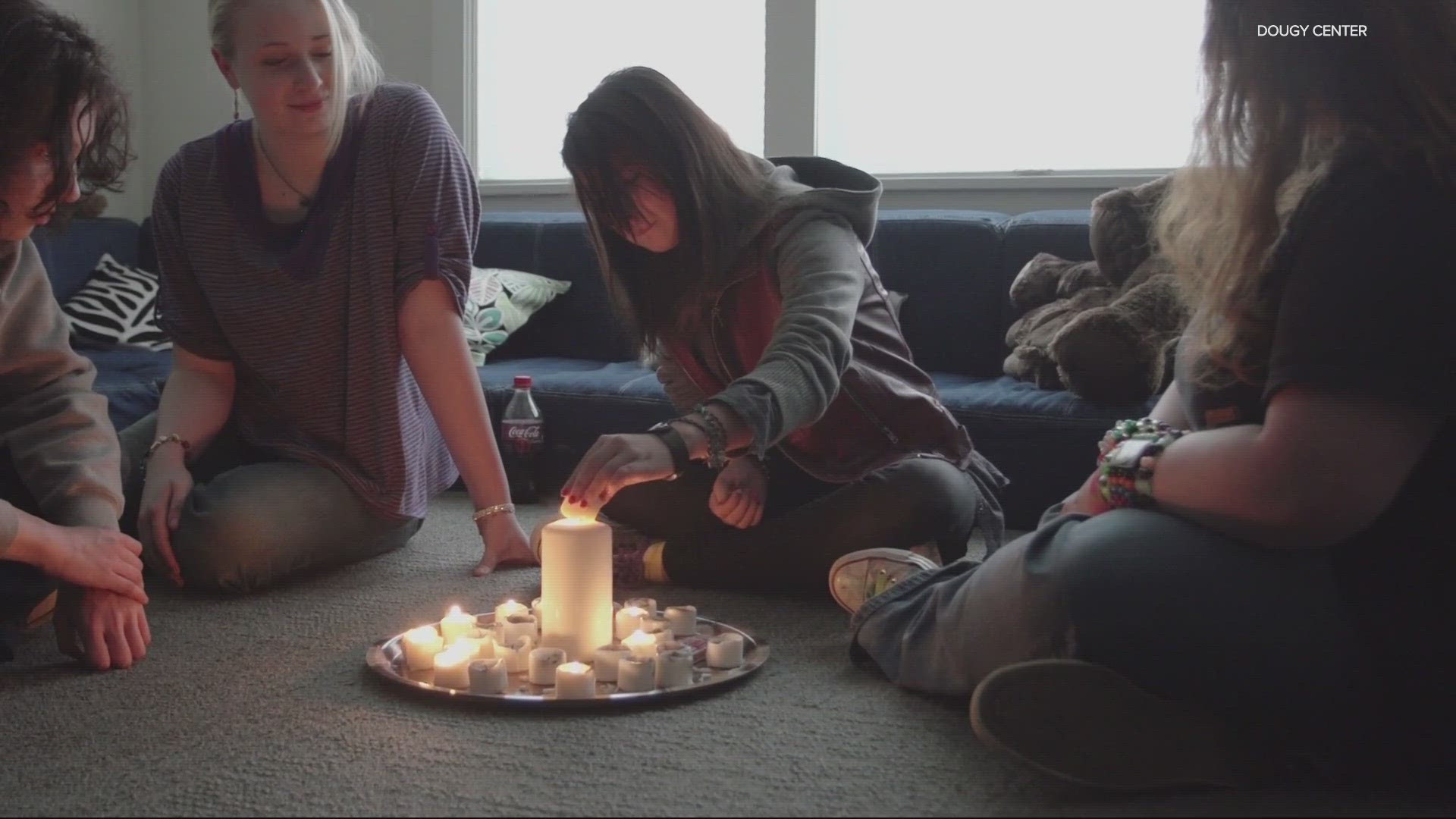PORTLAND, Ore. — Grief, unfortunately, is a part of life. When we lose a loved one it can have a profound impact at any age, but when a child loses a loved one, dealing with that grief can be even more challenging.
“Grief is a complex reaction to a loss of any kind, but grief is also natural and normal and healthy,” Brennen Wood Said.
Wood is the executive director of Dougy Center, The National Grief Center for Children and Families.
“Everyone says, ‘Am I doing this right? Am I doing this grief thing right?’ And the reality is there’s no right or wrong way to grieve,” Wood said.
The Dougy Center has been a safe place for kids, teens and their families to express their grief since 1981, and their model has been shared nationwide.
An estimated 6 million children in the U.S. will experience the death of a parent or sibling by the age of 18, according to JAG Institute. In Oregon, that’s 1 in 15 kids.
Supporting those children and their families in their grief is the mission of Dougy Center.
“Dougy Center provides grief support in a safe place for children and families before, during and after a death,” Wood said. “When kids have someone in their family who is super sick or have had a family member die, a parent or sibling die, we provide resources, support, community and a safe space for kids and families to come and express their grief.”
Wood says that often, as adults, we just want to take the hurt away. We want to fix it and make it better, but grief is a natural response to loss.
No matter how bad we want it, there’s no cure for grief, she said.
The Dougy Center focuses on giving kids and families tools to deal with it in a healthy way.
“We can help them learn to express themselves in ways that are healthy and give them an opportunity to really experience what they’re going through and not try to push it away or keep it at arm’s length when ultimately that’s what gets people into patterns that may not be healthy in the long run,” Wood said.
Wood knows the impact of the Dougy Center: She first came to the center when she was 12 years old after losing her mom, Doris.
“The Dougy Center was the single most helpful thing that happened for me in the aftermath of her death,” she said. “It was an incredible place for me because I had so many people in my life who wanted to help me but didn’t know how.”
The Dougy Center model focuses on peer-led support groups where kids, teens and families get to share their stories.
“It normalizes it. It gives them an opportunity to express their grief in a safe place with people who understand,” Wood said. “Kids are resilient, but they’re not resilient in a vacuum. They need support, community, they need to hear and understand the truth of what happened.”
Wood sees the Dougy Center are a preventative program, using connection, support and self-expression to help families and kids avoid negative or harmful outcomes of a traumatic loss.
“It’s okay to be angry, but it’s not okay to punch your little brother — so how do we help kids that big emotions, big responses? All of that is natural and normal and healthy, but we need safe outlets to get that out of our body, get that out of our mind, to talk about things,” Wood said.
Wood has experienced the impact of support and expression from all angles, from her own experience as a child, and now, as a parent. In 2016, she and her husband adopted their third child, after the death of both of her biological parents.
“We got to become Dougy Center parents, and I got to see the beauty of this program, the magic of the Dougy Center through her eyes, and now, she’s a volunteer,” Wood said.
No matter what your age, grief is a healthy response to loss, and we all need to find healthy ways to deal with it; Wood says that often starts with finding support.
“This peer support model where kids help each other through this really horrible, awful thing that happened in their families, but they get to come together and they get to honor the person who died and they get to express themselves in any way that works well for them,” Wood said.

